Moving Parts | Sailing Team Coach Rob Wilson
Moving Parts is an INEOS TEAM UK series looking at the invaluable work of different members from across the team. This time we are looking at INEOS TEAM UK’s Sailing Team Coach, Rob Wilson.
Rob Wilson grew up in the town of Shepperton in South West London, perhaps not the most obvious starting point for someone who would go on to have a highly decorated career in sailing.
“The Dobner’s were family friends and they needed an Under 11 for an Optimist team racing event, so they invited me along to do some training with them at Littleton Sailing Club which is set on a small lake. I loved it; they taught me a lot, gave me an opportunity to race against other boats and I really liked hanging out with the older kids. We’re still really good friends to this day.”
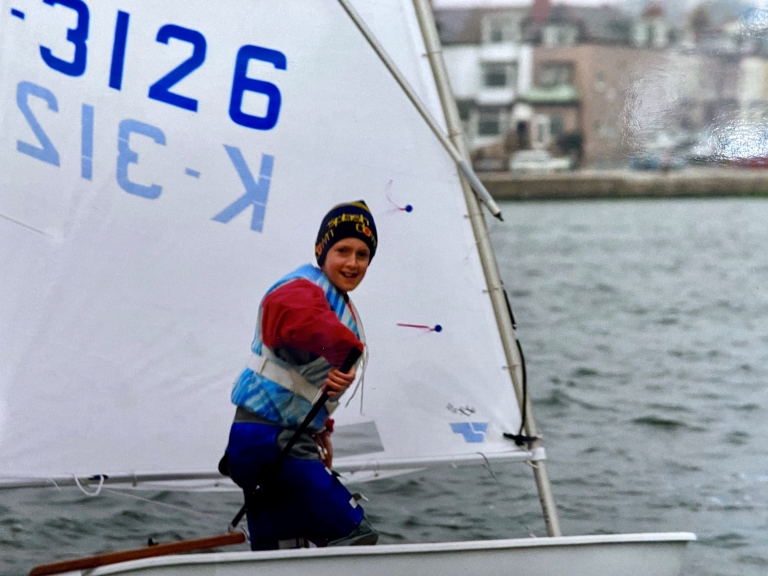
This experience kicked off Rob’s lifelong passion for sailing. At the age of 13 Rob was selected to go to Yokohama, Japan for his first Optimist World Championship (in 1989). Joining him at that event was another young British upstart also sailing in his first Optimist Worlds…
“At my first Oppie World’s I was racing against Ben (Ainslie); it was also his first Optimist World’s. Funnily enough I think he still has the results for that regatta hung up in his downstairs toilet. We raced against each other a lot over the coming years”
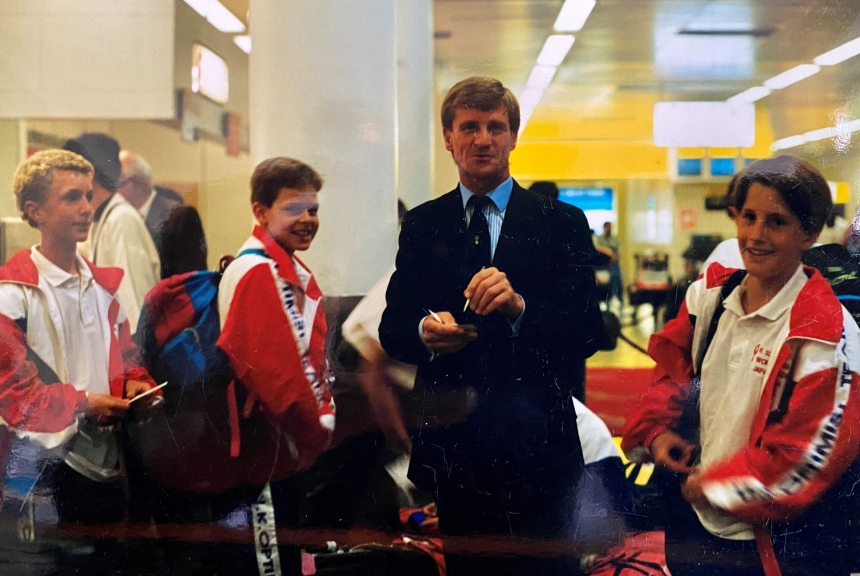
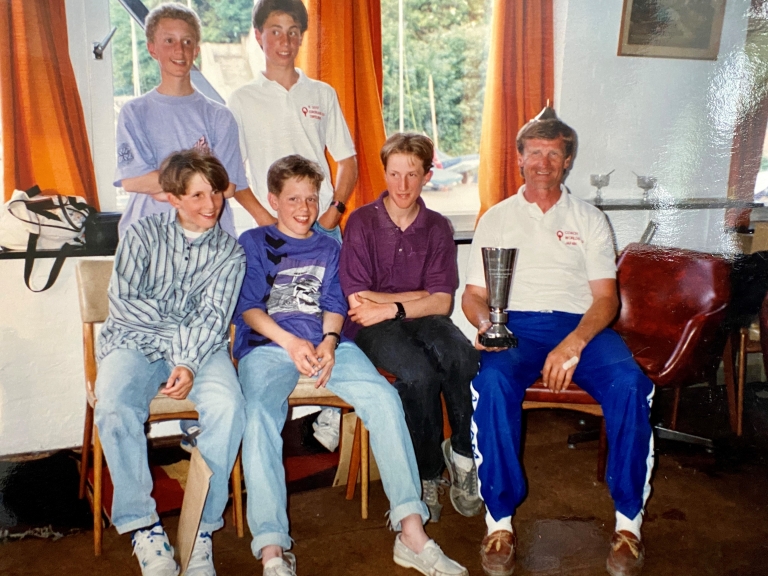
“There was a really good group of similar aged sailors that came through the Optimist programme at the same time. Ben, Iain Percy, Chris Draper, Nick Rogers, Rob Greenhalgh, and Saskia Clark to name just a few. It was a really talented group of sailors; we had a lot of fun and pushed each other hard on the racecourse.”
From the Optimist days, Rob progressed through the Junior and Youth ranks, racing in the 420s where he won the Youth Nationals and medalled at various international regattas. Alongside this he gained a place at Bristol University to study Chemistry, which he then followed up with a Masters Degree in Business at Southampton University.
After a stint working at Hyde Sails, sailing took a new direction for Rob when in 1997 the National Lottery Funding was introduced for British Olympic athletes. Rob was sailing the Olympic Tornado at the time and qualified to become a member of the RYA World Class Performance squad; he then went on to medal in several Grade 1 regattas and reached third in the World Rankings.
“Whilst sailing on the Olympic programme between 1997 and 2008, I saw the standard of coaching ramp up from weekend coaches through to the full-time professionals. I had learnt a lot from the different generations of coaches that had supported me and noticed how much coaching techniques had changed over the years. Experiencing these different styles of coaching first-hand I believe gave me a good platform to progress my coaching career.”
Whilst coaching had never been a full-time career for Rob; it had always been something he had enjoyed.
“I had always been involved in coaching; it helped fund my own sailing programme and was something that I felt passionate about. It started when I was only 14 years old, race training ten Optimist nippers at the local club, when on water health and safety rules were a little more relaxed! Coaching roles evolved from there and I worked with the British Youth Sailing team coaching at various Youth and Optimist Worlds.
“I always got a lot of satisfaction from helping young sailors to achieve their full potential. Helping them learn from the mistakes I had made when I first started sailing. I saw a lot of nippers come up through the Junior and Youth ranks, progress into the Olympic classes and go on to win Olympic medals. Seeing them develop was really rewarding.”
After the 2008 Olympics Rob had a decision to make. With the Tornado class no longer an Olympic class of boat; should he continue with his sailing career or move on to coach full-time?
“It was a tough decision to step away from racing, but I really enjoyed the coaching challenge and was keen to progress my career in this area and other avenues within the sailing world. I started work for North Sails and became more and more involved on the coaching side. A great opportunity came along to coach Leigh McMillan & The Wave, Muscat in the Extreme 40 Sailing Series (ESS) [Leigh McMillan is now also part of INEOS TEAM UK’s sailing team]. Leigh had been one of my main rivals in the Tornado class and we’d been head to head on the water for about six years. We went on to win a number of ESS events which was a lot of fun and really rewarding”
Rob, however, was never one to rest on his laurels and at the same time as coaching Leigh in the ESS, he was preparing Paralympian 2.4mR sailors Helena Lucas and Megan Pascoe for selection for the 2012 London Games. Helena Lucas was selected and ultimately triumphed in the 2.4mR at London 2012 and became the first ever British sailor to win a Paralympic Gold Medal.
“Coaching the ESS at the same time as the Paralympics, where we had two great 2.4mR competitors, Helena and Megan, couldn’t have been more different in terms of boat type and team requirements. At one end of the scale there was the Extreme 40 which at the time was a cutting-edge high-speed racing machine banging around short courses on a stadium racecourse. Then at the other end was the slightly slower, but much more refined and traditional tactically 2.4mR. Two real ends of the spectrum.”
Rob went on to coach Alegre at the Mini Max World Championships where they took the win. Then in 2014, Rob’s career came full circle when he was approached by Ben Ainslie; who he first sailed against at the Optimist World Championships in 1989; to join the British Challenger for the 35th America’s Cup as the Sailing Team Coach. For Rob, the decision to join was an easy one.
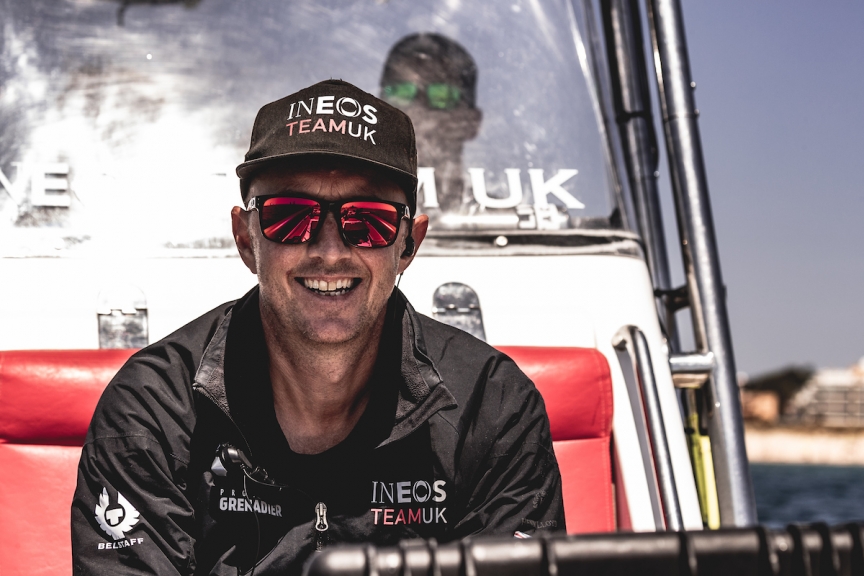
© Harry KH
“I had known Ben for a long time and knew a lot of the squad already, so I was really pleased to be asked to join the team. We kicked off with a training camp in Bermuda in the foiling 20s and straight away there was a good feeling, a solid team spirit.”
Success came along very quickly when the team won the 2015/16 America’s Cup World Series ahead of competing in the 35th America’s Cup in Bermuda, a real buzz for the team in their early days. Ultimately, however, it was Emirates Team New Zealand who went on to be victorious in Bermuda and won the 35th America’s Cup. Team New Zealand will now defend the Cup in March 2021 where the INEOS TEAM UK will continue their attempt to be the first British team to bring the Cup back home.
The role of an America’s Cup sailing team coach is a unique one. Over the course of the campaign it is a role that changes and evolves as the team progresses through various development stages. It is a role that Rob’s wide and varied career in sailing has prepared him for well.
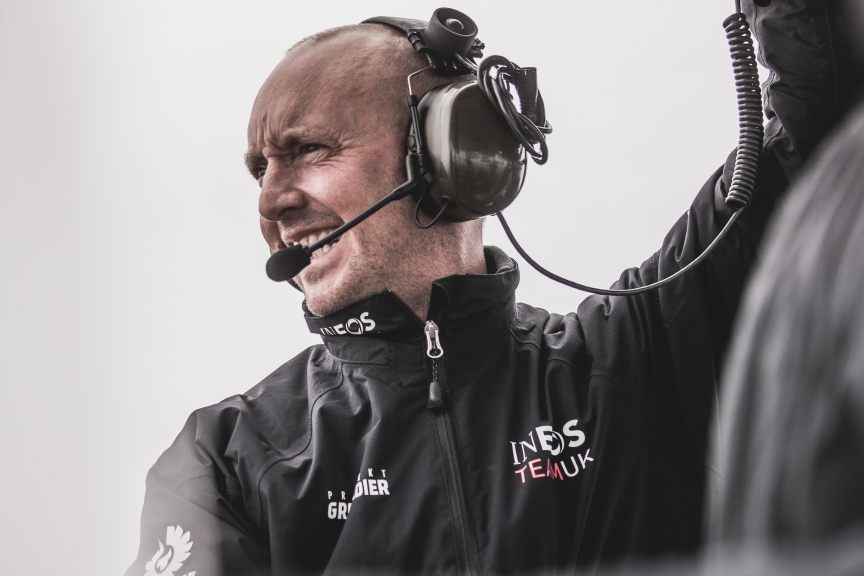
© HARRY KH_
“The role of an America’s Cup team coach can very broadly be split into two parts. First you have the development and performance side where the goal is to develop the boat systems and make it go as fast as possible. Then when you get closer to the regattas the focus shifts slightly, and it is more about getting ready for the events and race training preparation.
“The first part, the development and performance side, is where you work very closely with the sailing team, systems team and design team to try and get the most out of the boat. A big part of the job at that point is looking at the data coming off the boat. The boat models have to be validated and tweaked to make sure the design and real world align.
“Coaching in the Cup is very different to coaching for the Olympics. At Olympic level coaching you are looking for small incremental gains, which is a massive challenge in itself. The boats are generally quite evolved and have relatively strict rules. In the Cup, however, you have such a compact amount of time with completely experimental boats with massive design challenges. Every hour you go out sailing you are learning so much, every hour the guys are working on the boat in the shed they are making it faster, every hour the data is analysed - understanding increases.
“It’s all developing so quickly that the most important thing is to be efficient and maximise every hour of the day both in the shed and on the water. Our technical partnership with the Mercedes F1 team and their attention to detail to ensure they get the most out of every minute and hour has been quite an inspiration on that front.
“The second part of the role is when we get into race mode. By here, ideally boat handling and straight-line technique will be a given. When you get to the regattas it is much more about working with the team on start strategy, tactical plays, course strategy, rules, all the important traditional racing parts of sailing. Athlete fitness is managed by the Human Performance team, expertly led by Ben Williams.
“When racing in the Cup, the there is no communication allowed between the race boat and the support team. Whilst the sailors are focussed on churning out 500 Watts and pushing a 75-foot boat as close to the edge as they dare, the coach becomes a second pair of eyes for the sailors. You have more time to look at the big picture to try and identify what is going to make the biggest gains going forward. You can draw on the expertise of the team in the shed, design, performance, sailing or systems, then it’s all about giving that feedback after the race in an honest and level-headed way. The guys we have on the team are very experienced, so I never have to fluff the truth, I can be totally honest.”
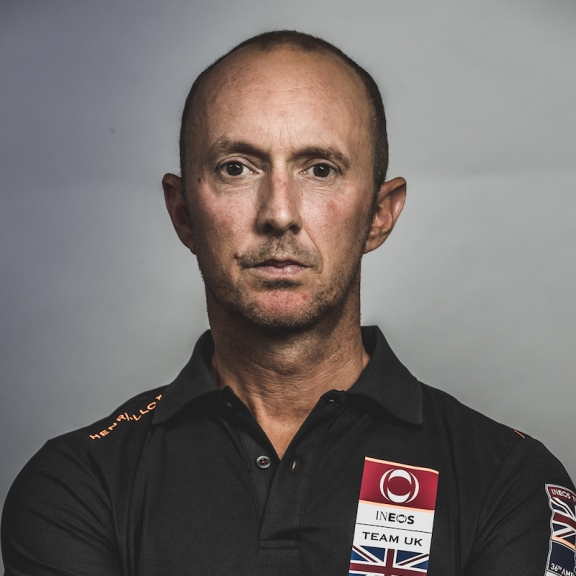
Whilst Rob’s coaching career has progressed a long way from coaching Optimists at the age of 14 through to becoming the Team Coach for an America’s Cup challenger, he has never lost his passion for the job and, if anything, the team spirit a Cup challenge brings has only ignited it further.
“In the America’s Cup you work long hours, you usually spend more time with your teammates than your family! In a sport such as sailing, to have such a solid team all focussed and driving towards one single goal is fantastic. I am proud to be part of a British team; as Jim Saltonstall the legendary sailing coach used to say to us when we were younger ‘For Queen and Country’. To have the opportunity to race; and potentially win alongside such a talented team of friends would just be amazing.
“What would it mean to me to win the Cup? If you asked me a month ago, I’d say it was the ‘ultimate goal’. It still is, and INEOS TEAM UK is continuing to work hard towards winning, however the current worldwide pandemic has put a lot of things into perspective over the past few weeks; the health of family, friends and frontline staff is at the forefront of all our minds.”